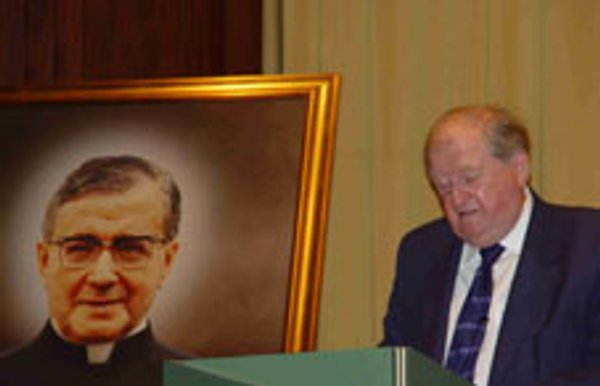Bishop George Stack , who introduced the event in the auditorium of the centre, which is an apostolate of the Opus Dei prelature, had earlier suggested that the great challenge in modern day society was to help people re-learn how to pray in an everyday setting. “Prayer is the oxygen of our spiritual lives”, he said (for Bishop Stack’s remarks, see link at right).
Professor Alan McClelland , of Hull University and the Catholic Records Society, continued the theme when he said in his address (for full text see link at right) that the main contribution that Opus Dei could make to the present-day Church would lie in “helping to release that hidden energy that Christ has implanted in each of us, that searching for Our Lord within man’s personal experience.” Professor McClelland co-edited “From Without the Flaminian Fate: 150 years of Roman Catholicism in England and Wales, 1850-2000”.
In his address, titled: “Trial by fire: the early years of Opus Dei”, Professor John Coverdale , of Seton Hall University (Newark, USA), outlined the experiences of St Josemaría Escrivá in the anti-clerical atmosphere of early 1930s Madrid. He was a passionate advocate of forming Catholics of all political persuasions in Christian principles, especially the commandment to love one another, rather than promoting party political solutions for them to adhere to (for full text see link at right).

During the interval Professor Coverdale signed copies of his recent book, “Uncommon Faith – The early years of Opus Dei, 1928-1943”.
Similar events were held in Manchester and Glasgow on the days following. In Glasgow, Professor Coverdale was joined by Martin Ketterer , of Scottish Television, who gave a personal account of the influence of St Josemaría on his life, as well as an assessment of how the message of the new saint can be transmitted through the media.


